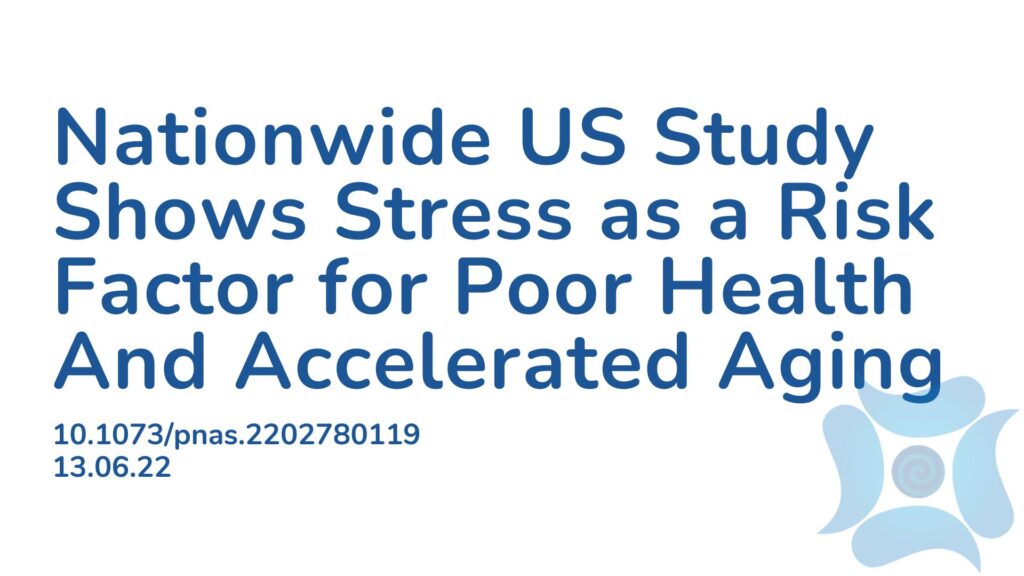Summary: Since the population of aging adults is increasing, understanding the complexities and contributors to age-related health is imperative. This study examines associations between stress and immune aging in a national sample of 5,744 older US adults. The stressors looked at are discrimination, stressful life events, trauma and chronic stress. The study shows that exposure to stress is a risk factor for poor health and accelerated aging and it also accelerates aging of the immune system. This potentially increases an individual’s risk of cancer, cardiovascular disease and severity of infections such as COVID-19. This research is important as it can help explain disparities in health related to age, including the disproportionate impacts of the COVID-19 amongst older populations. As expected in the results, people with higher stress scores had older acting immune systems with lower rates of new and active immune cells. There was also a higher presence of aged white blood cells. The association between stress and an aged immune system remained present even after controlling for smoking, drinking, body mass index, health literacy and race.
Abstract:
Exposure to stress is a risk factor for poor health and accelerated aging. Immune aging, including declines in naïve and increases in terminally differentiated T cells, plays a role in immune health and tissue specific aging, and may contribute to elevated risk for poor health among those who experience high psychosocial stress. Past data have been limited in estimating the contribution of life stress to the development of accelerated immune aging and investigating mediators such as lifestyle and cytomegalovirus (CMV) infection. This study utilizes a national sample of 5,744 US adults over age 50 to assess the relationship of social stress (viz., everyday discrimination, stressful life events, lifetime discrimination, life trauma, and chronic stress) with flow cytometric estimates of immune aging, including naïve and terminally differentiated T cell percentages and the ratio of CD4+ to CD8+ cells. Experiencing life trauma and chronic stress was related to a lower percentage of CD4+ naïve cells. Discrimination and chronic stress were each associated with a greater percentage of terminally differentiated CD4+ cells. Stressful life events, high lifetime discrimination, and life trauma were related to a lower percentage of CD8+ naïve cells. Stressful life events, high lifetime discrimination, and chronic stress were associated with a higher percentage of terminally differentiated CD8+ cells. High lifetime discrimination and chronic stress were related to a lower CD4+:CD8+ ratio. Lifestyle factors and CMV seropositivity partially reduced these effects. Results identify psychosocial stress as a contributor to accelerating immune aging by decreasing naïve and increasing terminally differentiated T cells.
Article Publication Date: 13.06.22
DOI: 10.1073/pnas.2202780119



